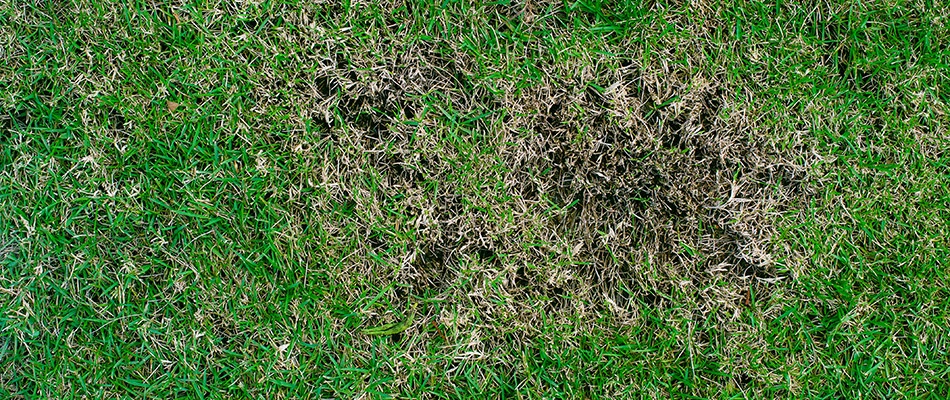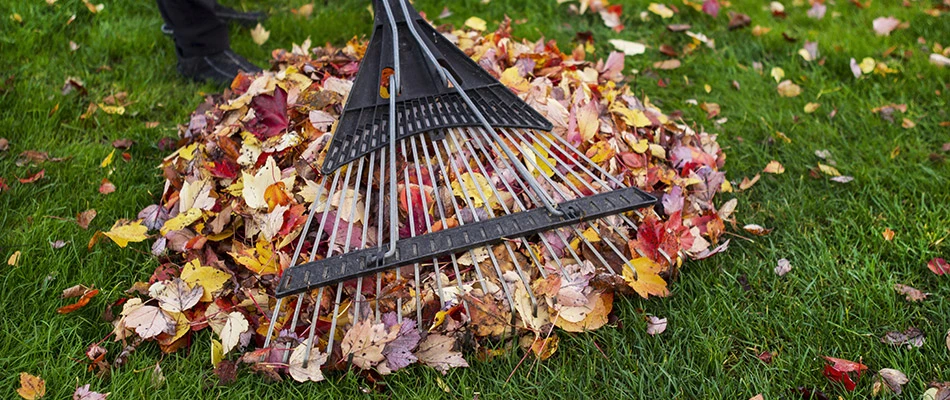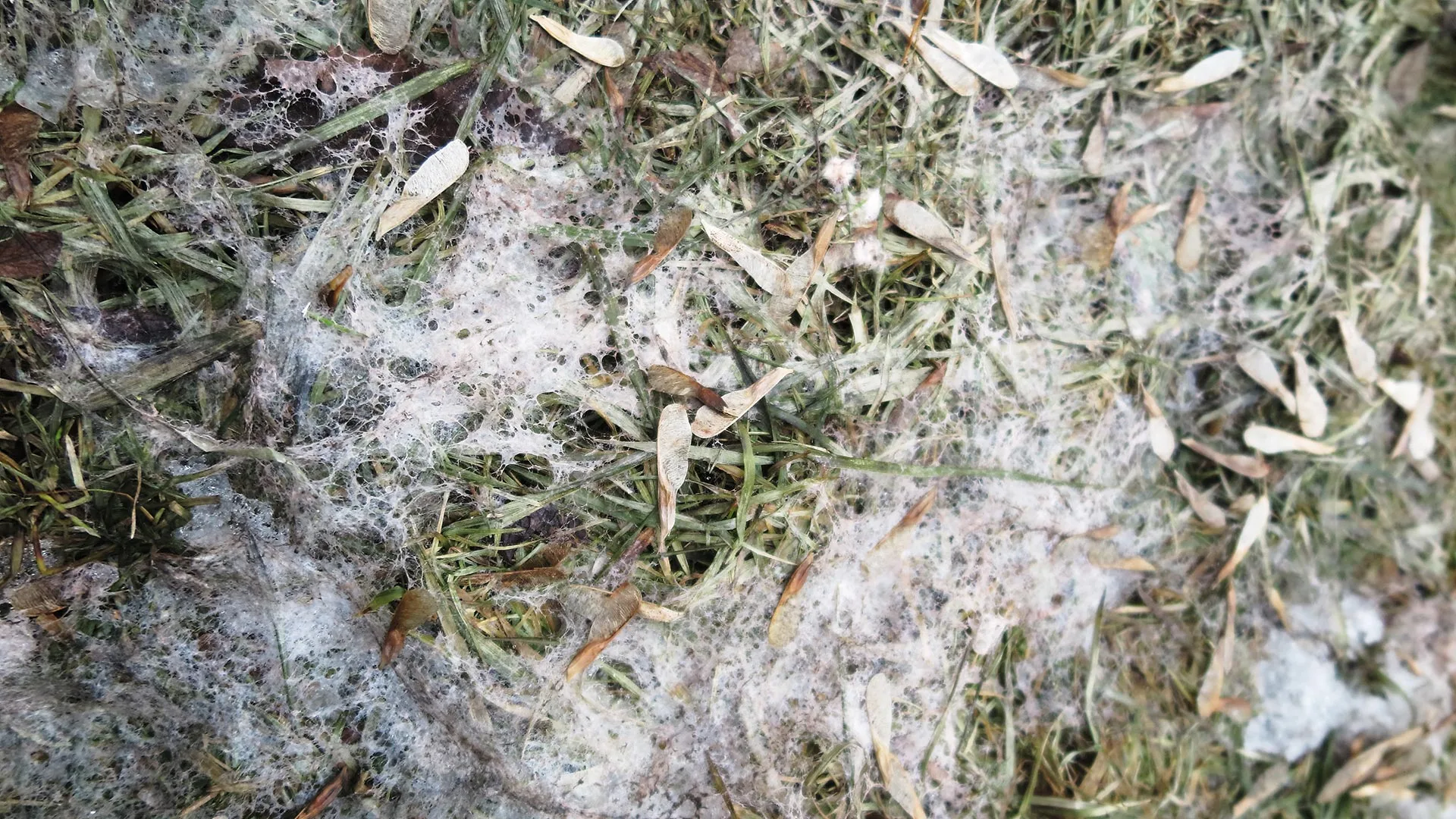Once the snow melts in Michigan, we're ready to see our beautiful green lawns come alive again – but sometimes, we get the nasty surprise of snow mold instead. Don't panic! Typically, grass will recover on its own with a little TLC, so give it some time. After a few weeks, if your grass still is looking lackluster, call a professional to assess the situation and create a recovery plan for your lawn. To prevent seeing the same thing next year, proper preparation in the fall is essential, including debris removal, fertilizer, and weed control. Ticking these boxes in fall will help ensure that come spring, you won't see any nasty surprises and can get straight to enjoying your lawn again!
Grass can often recover from snow mold on its own with some time.

Although it may feel like all is lost, grass will often recover on its own after a mild bout of snow mold, so try to have patience! With a little time and some TLC, your lawn will likely be back in good shape. To help it recover and speed up the process, rake out the affected areas to open up the areas of matted grass. This will also allow your lawn and soil to dry out faster and squash any remaining disease since snow mold thrives in moist environments.
If your lawn is still struggling after a few weeks, call a professional!
Once a few weeks have passed, you should see significant improvement in your lawn. However, if your grass is still struggling, it's time to call in the big guns: a lawn care professional. They'll assess the situation with a trained eye, determining the extent of the snow mold damage and what may be holding your lawn back from a full recovery. With this information, the professional will create a rejuvenation plan for your lawn, often including:
- Fertilization: Your grass will be trying to rebuild its nutrient stores after rationing all winter, so a fertilizer treatment will ensure it has everything it needs to strengthen itself and rebuild after the snow mold damage.
- Weed control: Weeds will voraciously steal and feed on the nutrients your lawn needs in this fragile state, so weed control is essential to remove the element of competition so that your grass can thrive.
- Aeration: By reducing soil compaction, aeration will improve nutrient access for the deep roots of your grass and increase fertilizer uptake in your lawn for a swift recovery.
To prevent snow mold, proper fall preparation includes debris removal, weed control, and fertilization.

Once you've thwarted snow mold once, you'll never want to deal with it again! For the best chances of preventing the same headache next year, make sure that you have proper preparation set up in the fall to bolster your lawn against this threat. Scheduling debris removal will ensure your lawn is clear of any problem areas that could trap moisture and encourage the development of snow mold. With fertilizer and weed control, your lawn will be armed with the tools it needs to build a strong foundation against health threats and weed invasions.
Mowing grass to the right height will increase turfgrass density and promote deep root growth, helping improve disease resilience.
Struggling with snow mold in your lawn? We can help! Call us today to schedule your next service.
If your lawn is struggling, you'll want to call the best of the best – and that's Big Lakes Lawncare. Our passion for everything lawn and landscape is unparalleled, and you can see that in the care and attention to detail we pour into every service we provide. We're well-versed on how to tackle a myriad of lawn diseases like snow mold that we commonly run into in Macomb, MI and nearby areas like Shelby and Chesterfield. Call us today at (586) 200-0855 to schedule your next service so we can get your lawn back on the right track.




Comments (0)
Thanks for your comment!
Thanks for your feedback! Your comments have been successfully submitted! Please note, all comments require admin approval prior to display.
Error submitting comment!
There is a problem with your comment, please see below and try again.